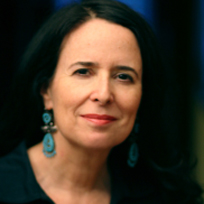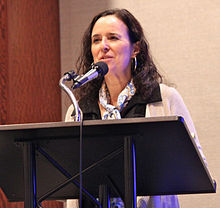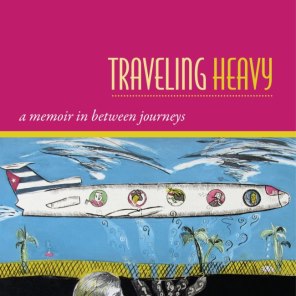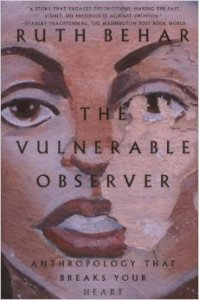 Ruth Behar (born 1956) is a Cuban-American anthropologist and writer. Her work includes academic studies, as well as poetry, memoir, and literary fiction. As an anthropologist, she has argued for the open adoption and acknowledgement of the subjective nature of research and participant-observers.
Ruth Behar (born 1956) is a Cuban-American anthropologist and writer. Her work includes academic studies, as well as poetry, memoir, and literary fiction. As an anthropologist, she has argued for the open adoption and acknowledgement of the subjective nature of research and participant-observers.
Behar was born in Havana, Cuba in 1956 to a Jewish-Cuban family of Sephardic Turkish, and Ashkenazi Polish and German ancestry. She was four when her family immigrated to the US following Fidel Castro’s gaining power in the revolution of 1959. More than 94% of Cuban Jews left the country at that time., together with many others of the middle and upper classes. Behar attended local schools and studied as an undergraduate at Wesleyan University, receiving her B.A. in 1977. She studied cultural anthropology at Princeton University, earning her doctorate in 1983.
She travels regularly to Cuba and Mexico to study aspects of culture, as well as to investigate her family’s roots in Jewish Cuba. She has specialized in studying the lives of women in developing societies. Since 1991 her research and writing have largely focused on her native country, Cuba, which she left at the age of four; her parents had family that had been there since the 1920s. Her research on the dwindling Jewish community in Cuba is also the focus of her film, Adio Kerida (2002). It featured camera work and editing by her son Gabriel Frye-Behar.
Behar is a professor at the Department of Anthropology at the University of Michigan in Ann Arbor. Her literary work is featured in the Michigan State University’s Michigan Writers Series. A writer of anthropology, essays, poetry and fiction, Behar focuses on issues related to women and feminism.
Her personal life experiences as a Jewish Cuban-American woman are frequently an important part of her writing. Her dissertation (1983), based on her first fieldwork in northern Spain, became the basis for her first book.
Her second book, Translated Woman (1993), was based on ten years of fieldwork in a rural town in Mexico. Her book, The Vulnerable Observer: Anthropology That Breaks Your Heart, examines the role that the personal can play in ethnographic writing and generated controversy. Jewish Cuba is the topic of her book, An Island Called Home: Returning to Jewish Cuba (2007), as well as her latest book, Traveling Heavy: A Memoir in between Journeys (2013).
Traveling Heavy.
Traveling Heavy (2013) is a memoir about her Cuban-American family, descended from both Ashkenazi and Sephardic Jews in Cuba, as well as the strangers who ease her journey in life. Her probings about her complicated Jewish Cuban ancestry and family’s immigration to America explore issues about identity and belonging.
Kirkus Reviews described her book as “A heartfelt witness to the changing political and emotional landscape of the Cuban-American experience.” Behar studies the revitalization of Cuban Jewish life as an anthropologist, but her personal journey back to the island she left as a little girl is the heart of this “memoir I snuck in, between journeys.”
An Island Called Home.
An Island Called Home (2007) was written in Behar’s quest for a better understanding of Jewish Cuba and particularly her family’s roots. She noted, “I knew the stories of the Jews in Cuba, but it was all about looking at them as a community”. Traveling the island, Behar becomes the confidante to a host of Jewish strangers, building connections for further anthropological research. Conducting one-on-one interviews, combined with black-and-white photography, she builds readers an image of the diasporic thread connecting Cuban Jews to one another.
Beginning with Jewish immigrants of the 1920s, who fled unrest in Turkey, Russia and Poland, she moves on to stories of later immigrants, Polish and German Jews who fled to Cuba in the 1930s and 1940s in order to escape persecution and the concentration camps of the Nazis. In Cuba immigrants opened mom-and-pop shops, peddled, and gradually adopted Spanish while still speaking Yiddish, settling into Latino life in La Habana Vieja. In the early part of the century, many Jewish immigrants worked in the Cuban garment industry. More than 94% left during and after the 1959 revolution. As her family was among those who left Cuba, Behar intertwines her personal thoughts and feelings with her professional, analytical observations of the current society.
The Vulnerable Observer.
The Vulnerable Observer recounts Behar’s passage to integrating subjective aspects into her anthropological studies. Behar’s grandparents emigrated to Cuba from Russia, Poland and Turkey during the 1920s. In 1962 they fled Cuba to escape Castro’s communism. At the age of nine, Behar suffered a broken leg from the crash of her family’s car. She was immobilized for a year.[10] The experience and recovery period led her to the recognition that “the body is a homeland” of stored memory and pain.
Awards and honours.
In 1988, Behar was the first Latino woman to be awarded a MacArthur fellowship. *In 2011 she gave a Turku Agora Lecture.
Selected bibliography.
Books
The Presence of the Past in a Spanish Village: Santa María del Monte (1986)
Translated Woman: Crossing the Border with Esperanza’s Story (1993; second edition, Beacon Press, 2003 ISBN 978-0-8070-4647-0)
Bridges to Cuba / Puentes a Cuba, editor, University of Michigan Press, 1995, ISBN 978-0-472-06611-7
Women Writing Culture Editors Ruth Behar, Deborah A. Gordon, University of California Press, 1995, ISBN 978-0-520-20208-5
The Vulnerable Observer: Anthropology That Breaks Your Heart, Beacon Press, 1996, ISBN 978-0-8070-4631-9
An Island Called Home: Returning to Jewish Cuba, Rutgers University Press, 2007, ISBN 978-0-8135-4189-1
The Portable Island: Cubans at Home in the World, Editors Ruth Behar, Lucía M. Suárez, Macmillan, 2008, ISBN 978-0-230-60477-3
Traveling Heavy: A Memoir in Between Journeys., Duke University Press, 2013, ISBN 978-0-8223-5720-9
Film.
Adio Kerida (Goodbye Dear Love): A Cuban-American Woman’s Search for Sephardic Memories (2002)
Agencies/Various/Wiki/InternetPhotos/youtube/thecubanhistory.com
The Cuban History, Hollywood.
Arnoldo Varona, Editor.






